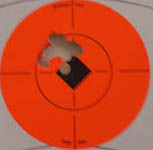Browsing through the “new arrivals” at Collectors, I stumbled across not one but two older Lugers. If you haven’t watched Othias and Mae’s take on this splendid old piece — and shame on you if you haven’t — go there now and spend a worthwhile hour learning about the Pistole 08.
The first one that caught my eye is a “Swiss”-type Model 1900 Luger, issued to the Swiss police, and was the first Luger to be adopted by anyone.
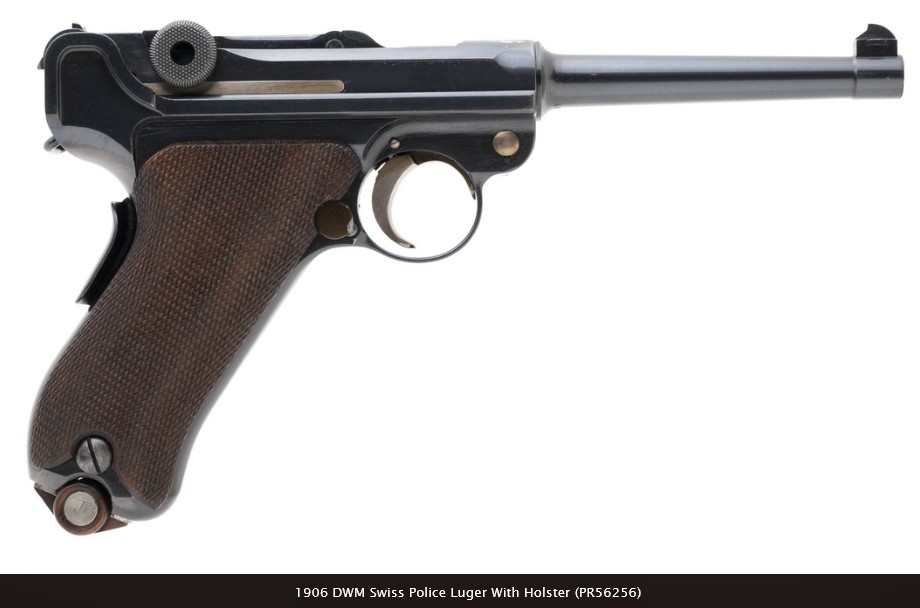
What interests me is that firstly, we know that this little beauty was well-looked after for at least the first 50 years of its life because it was used by a 1.) Swiss 2.) policeman, and I bet that since its arrival in the U.S. some fifty-odd years ago, it’s been just as carefully maintained. As its price (just under $3,000) would indicate, this is like to be a cherry, and scarce withal because the Swiss ordered only a few thousand of them. Only later did those 1900 Police models (chambered in 7.65x21mm Parabellum / .30 Luger) get replaced by the P.08 in 9mm Parabellum, which means that this particular model spent most of its life in Switzerland locked in a cabinet somewhere as surplus (the Swiss never sold off their older-model Lugers to civilians until they opened them up for export in 1959).
The second of the Lugers is a “commercial” (i.e. private) piece:
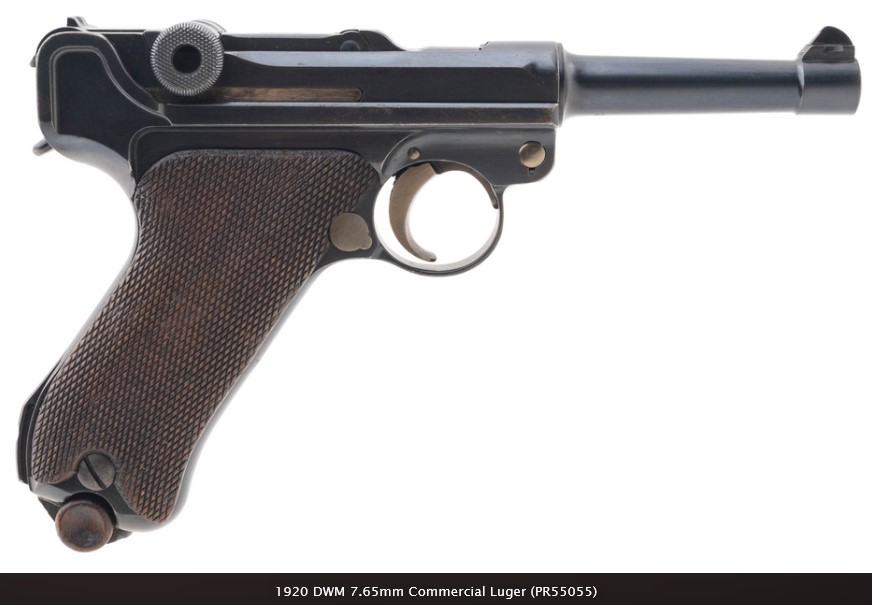
Note that the Swiss model can be distinguished from the commercial one by the added grip safety (which was part of the Swiss list of requirements). As with all such guns, we can’t be sure of this one’s condition because we don’t know how owners have handled the thing (and its price, under $2,000, reflects both that and its non-rarity, as they were produced in the tens of thousands). Unlike most of the Lugers out there today, this particular one is also chambered in 7.65mm Parabellum.
…which of course is going to raise the question: “Hey Kim, if you think the 115gr 9mmP is a useless Europellet, why do you like the smaller 93g .30 Luger cartridge so much?” and it’s a valid question.
Simple answer: it’s more fun to shoot, and makes no claim to being an effective self-defense cartridge. It used to be thought of that way, back in the very early 1900s when the cartridge was first released, but the Euros hadn’t yet been exposed to the .357 Magnum or even the .45 ACP. (For some reason, Euros have always preferred inadequate cartridges in their handguns. No, I don’t know why either.)
More importantly, I actually used to own a Luger chambered in 7.65mm, sold it under extreme duress, and I can truthfully say that of the many hundreds of centerfire pistols I’ve fired in my lifetime, that Luger ranks #3 in the “fun gun” category. (#1 is the 1905 Colt in .32 ACP, and #2 is the SIG Sauer P230, also in .32 ACP.) I still wish I’d kept it.
Fun guns are those that you do not shoot for practice, e.g. self-defense or competition, but on those occasions when you just shoot at cans or something, and you don’t want to shoot .22 LR (it can happen), or you just feel like shooting a different gun.
And boy, is that Luger ever different.
Ammo cost is surprisingly low. Prvi Partizan (bless their little Balkan hearts) make the .30 Luger, and the retail thereof is about 60 cents/round. Sellier&Bellot 9mmP compares at 35 cents, but then again you’re going to shoot your Europellets in the thousands versus the .30 Lugers by the dozen.
Another point of query might be shooting a pistol with the severe grip angle/rake of the Luger (and Ruger .22 pistols) compared to my favorite style of the 1911:
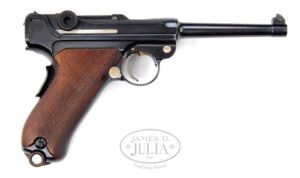
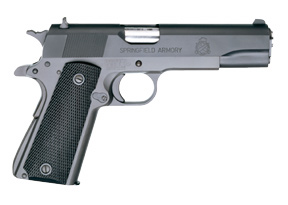
The Luger grip doesn’t require familiarity — it is, after all, more of a curio than a “functional” gun.
All that said, if I had the dough right now I’d be talking about that Swiss beauty as a recent acquisition rather than as an object of desire.





